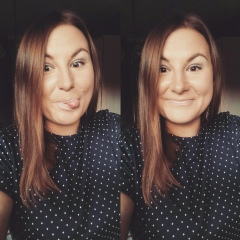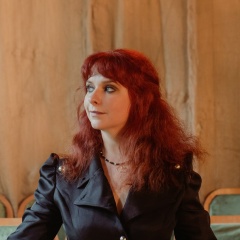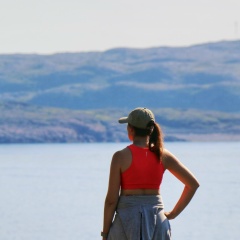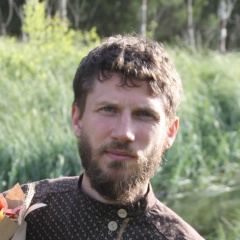Сегодня был переход на тот самый остров на том самом баркасе, и он достоин отдельного рассказа.
Утлая посудинка Jessabel курсирует в нужном нам направлении три раза в неделю, перевозя местных жителей и особо отчаянных туристов. Время в пути 6 часов.
Мы прибыли в порт за 5 минут до отплытия и последними проходили ручной(!) досмотр багажа. Вооруженные представители власти, кинологи, собаки-все серьезно. Погрузились на борт и, так как немного припозднились, расположились в самом конце салона. Здесь, где палуба немного более открыта, было понятно, при движении лодки, будет немного заливать. Места на носу корабля заняли более пунктуальные пассажиры.
В начале, путешествие казалось нам безобидной морской прогулкой: большинство туристов растянулось на скамейках в надежде поспать, Паша загорал на помостках, а я читала внутри палубы, в глубине души коря себя за то, что не удосужилась собраться на 15 минут пораньше. Легкая качка на волнах сделала свое дело, и я не заметила, как уснула.
Проснулась я оттого, что в помещении поднялся шум. Открыв глаза, я увидела, что воды на полу по щиколотку, а вокруг меня, как воробушки на жердочке сидят все остальные пассажиры. Дело в том, что в лодке были "окна", но не было стекол. Лодка полностью сделана из дерева-деревянные верхняя и нижняя палубы, а вместо окон деревянные рамки. Нос лодки разрезал усиливающиеся волны, а потом вода через окна попадала прямо в салон. Вода, попадающая на верхнюю палубу, так же по перекрытиям просачивалась внутрь. Не было никакой разницы где ты сидишь, на корме ли, или на носу- все были одинаково мокрыми. Путешествующие с нами американцы, натянув дежурную улыбку, повторяли "Nice experience".
Качка на волнах продолжалась несколько часов, периодически в мотором отсеке что-то ломалось, и матросы, прямо во время движения, прыгали в трюм и на ходу исправляли поломку.
Мокрые насквозь и пропитанные солью, но живые и страшно довольные, мы сошли с корабля на берег острова Корон.
Утлая посудинка Jessabel курсирует в нужном нам направлении три раза в неделю, перевозя местных жителей и особо отчаянных туристов. Время в пути 6 часов.
Мы прибыли в порт за 5 минут до отплытия и последними проходили ручной(!) досмотр багажа. Вооруженные представители власти, кинологи, собаки-все серьезно. Погрузились на борт и, так как немного припозднились, расположились в самом конце салона. Здесь, где палуба немного более открыта, было понятно, при движении лодки, будет немного заливать. Места на носу корабля заняли более пунктуальные пассажиры.
В начале, путешествие казалось нам безобидной морской прогулкой: большинство туристов растянулось на скамейках в надежде поспать, Паша загорал на помостках, а я читала внутри палубы, в глубине души коря себя за то, что не удосужилась собраться на 15 минут пораньше. Легкая качка на волнах сделала свое дело, и я не заметила, как уснула.
Проснулась я оттого, что в помещении поднялся шум. Открыв глаза, я увидела, что воды на полу по щиколотку, а вокруг меня, как воробушки на жердочке сидят все остальные пассажиры. Дело в том, что в лодке были "окна", но не было стекол. Лодка полностью сделана из дерева-деревянные верхняя и нижняя палубы, а вместо окон деревянные рамки. Нос лодки разрезал усиливающиеся волны, а потом вода через окна попадала прямо в салон. Вода, попадающая на верхнюю палубу, так же по перекрытиям просачивалась внутрь. Не было никакой разницы где ты сидишь, на корме ли, или на носу- все были одинаково мокрыми. Путешествующие с нами американцы, натянув дежурную улыбку, повторяли "Nice experience".
Качка на волнах продолжалась несколько часов, периодически в мотором отсеке что-то ломалось, и матросы, прямо во время движения, прыгали в трюм и на ходу исправляли поломку.
Мокрые насквозь и пропитанные солью, но живые и страшно довольные, мы сошли с корабля на берег острова Корон.
Today there was a transition to the same island on the same launch, and he deserves a separate story.
Jessabel, a slim plate, runs in the direction we need three times a week, carrying locals and especially desperate tourists. Travel time is 6 hours.
We arrived at the port 5 minutes before departure and were the last to have a manual (!) Inspection of baggage. Armed officials, dog handlers, dogs, everything is serious. We plunged on board and, as they were a bit late, settled down at the very end of the cabin. Here, where the deck is a little more open, it was clear that when the boat was moving, it would be a little flooded. More punctual passengers took their places on the prow.
In the beginning, the trip seemed to us a harmless boat trip: most of the tourists stretched out on benches hoping to sleep, Pasha was sunbathing on the ramparts, and I read inside the deck, in my heart reproaching myself for not having bothered to gather 15 minutes early. The easy rolling on the waves did its job, and I did not notice how I fell asleep.
I woke up because there was a noise in the room. Opening my eyes, I saw that the water was ankle-deep on the floor, and all the other passengers were sitting around me like a sparrow on a perch. The fact is that there were “windows” in the boat, but there were no glasses. The boat is completely made of wood, wooden upper and lower decks, and instead of windows wooden frames. The bow of the boat cut the growing waves, and then the water through the windows fell directly into the cabin. The water entering the upper deck also leaked through the ceilings. There was no difference where you sit, on the stern, or on the bow — everyone was equally wet. Americans traveling with us, pulling the smile on duty, repeated "Nice experience".
The pitching on the waves lasted several hours, from time to time something broke in the engine compartment, and the sailors, right on the move, jumped into the hold and fixed the breakage on the move.
Wet through and saturated with salt, but alive and terribly pleased, we descended from the ship to the coast of Coron Island.
Jessabel, a slim plate, runs in the direction we need three times a week, carrying locals and especially desperate tourists. Travel time is 6 hours.
We arrived at the port 5 minutes before departure and were the last to have a manual (!) Inspection of baggage. Armed officials, dog handlers, dogs, everything is serious. We plunged on board and, as they were a bit late, settled down at the very end of the cabin. Here, where the deck is a little more open, it was clear that when the boat was moving, it would be a little flooded. More punctual passengers took their places on the prow.
In the beginning, the trip seemed to us a harmless boat trip: most of the tourists stretched out on benches hoping to sleep, Pasha was sunbathing on the ramparts, and I read inside the deck, in my heart reproaching myself for not having bothered to gather 15 minutes early. The easy rolling on the waves did its job, and I did not notice how I fell asleep.
I woke up because there was a noise in the room. Opening my eyes, I saw that the water was ankle-deep on the floor, and all the other passengers were sitting around me like a sparrow on a perch. The fact is that there were “windows” in the boat, but there were no glasses. The boat is completely made of wood, wooden upper and lower decks, and instead of windows wooden frames. The bow of the boat cut the growing waves, and then the water through the windows fell directly into the cabin. The water entering the upper deck also leaked through the ceilings. There was no difference where you sit, on the stern, or on the bow — everyone was equally wet. Americans traveling with us, pulling the smile on duty, repeated "Nice experience".
The pitching on the waves lasted several hours, from time to time something broke in the engine compartment, and the sailors, right on the move, jumped into the hold and fixed the breakage on the move.
Wet through and saturated with salt, but alive and terribly pleased, we descended from the ship to the coast of Coron Island.








У записи 10 лайков,
0 репостов.
0 репостов.
Эту запись оставил(а) на своей стене Ирина Мешалкина






























